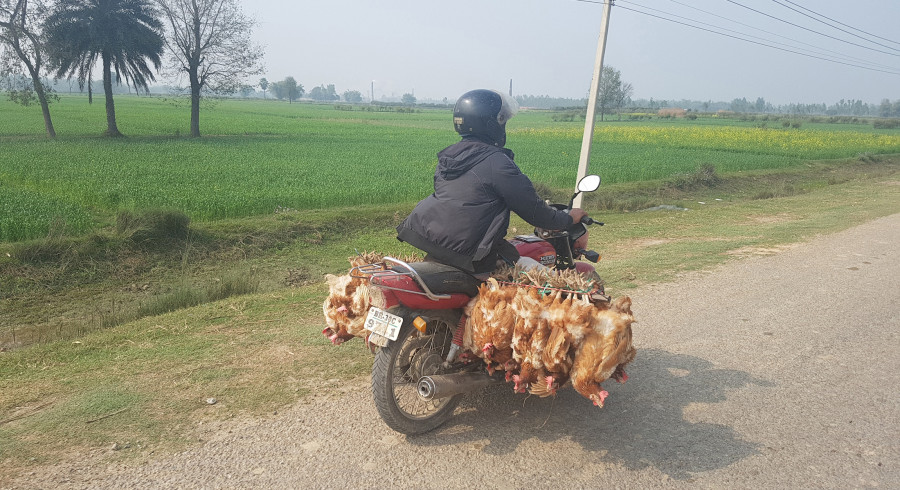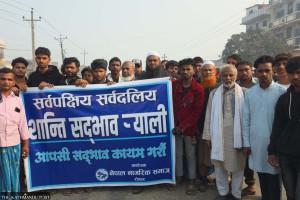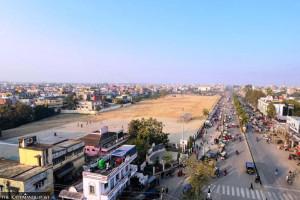Madhesh Province
Rautahat residents criticise inhumane animal transportation
Chickens to be sold to butchers in various parts of the district make their journey hanging upside down, with their feet tied together.
Shiva Puri
A common sight along the Gaur-Chandranigahapur road section in Rautahat district is that of poultry traders ferrying chickens on motorcycles and bicycles. The chickens to be sold to butchers in various parts of the district make their journey hanging upside down, with their feet tied together.
Traders in the district transport chickens in an inhumane manner for slaughter, with some traders transporting up to 50 fowls at a time on one motorbike, says Binod Pandey, chairman of the poultry trader’s association in the district.
Mistreatment of animals was criminalised in 2016, under the new Criminal Code. According to Clause 290 of the Code, with an exception for training or improving its physical capacity, anyone found guilty of behaving cruelly with birds or animals is liable to three months in jail and Rs 5,000 fine or both. Similarly, Clause 291 says, with an exception for religious purposes, anyone found guilty of killing birds and animals in public places is liable to one month in jail and Rs 5,000 fine or both.
Khadga Mainali, chief at Livestock Service Centre in the district, said that farm animals cannot be transported to slaughterhouses in a cruel manner. “Poultry traders have been found violating the law constantly,” said Mainali, adding that his office is going to hold a discussion with concerned stakeholders to solve the problem.
Pandey said they have been requesting traders to stop the inhumane treatment of animals and fowls. “But they don’t pay attention to our request. There have been times when poultry traders have even misbehaved with us when we have asked them to treat the animals in a better way,” said Pandey.
Although animal rights activists in the area have been sternly protesting against the inhumane transportation of farm animals, traders are still transporting animals—including birds and ducks—in a cruel manner. Basu Dhungana, an animal rights activist, said that more stringent action needs to be taken against the traders. “The vehicles [which transport animals] should be wide enough for animals to move about and breathe comfortably. There is a law in place to deter such inhumane behaviour, but it’s not effective,” he said. According to him, it’s illegal to keep animals in a vehicle for more than eight hours without unloading them for resting, feeding and drinking water.
“However, traders are found transporting livestock from Saruatha, Rajapur, Garuda, including other areas, to Kathmandu for more than eight hours without rest, feed and water,” said Dhungana.
Last year, the Supreme Court issued an interim order asking the government to ensure that livestock are transported humanely. A petition was also filed by advocates Padam Bahadur Shrestha and Shatkon Shrestha to control inhumane transportation of farm animals.




 9.7°C Kathmandu
9.7°C Kathmandu














